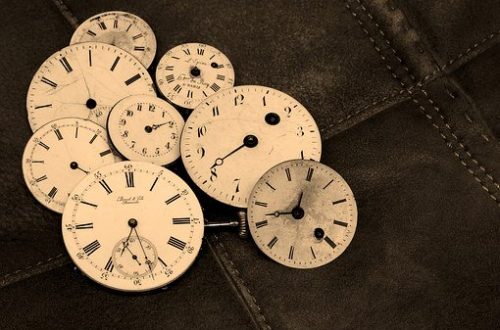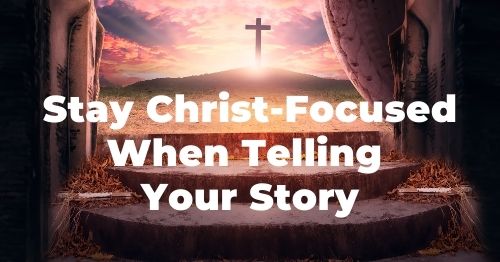The Stink of Self-Pity
When I got polio as an infant in 1953, just before the vaccine was developed, my parents were instructed by the doctors and the therapists that the very worst thing that could happen was for me to wallow in self-pity, and to never let me go there. Maybe they all thought that if no one ever talked about the huge assault of this life-changing trauma, it would never occur to me to think about it, and so I’d never end up in the Self-Pity Mudpuddle. So what was modeled to me, and which I dutifully followed, was a constant response of denial.
So I grew up wondering, but never able to put into words, why it was that no one seemed to understand how really, really rotten it was that I have to live my entire life with a disability, with restrictions, with growing weakness and fatigue and pain.
Fast forward to a recent mini-vacation in Cozumel with my sister and her husband. I have a lightweight travel scooter that enables me to zip around, covering distances too great for me to walk, even with my cane. Well, one night we left the scooter outside our bungalow door while we charged the battery inside, but during the night there was a torrential downpour. Scooters and rain, I learned, are mortal enemies. It was dead. I called the front desk to ask for a golf cart to come get me to take me to the resort restaurant for breakfast, but no one came and it was too far to walk.
At one point, my husband Ray lovingly said, “You know you can’t go into town without your scooter, and there are no wheelchairs here.” (He knows me well; well-trained in denial from toddlerhood, it’s easy for me to say, “Oh, it’ll be fine”—and then later I am in excruciating pain after walking. He needs to speak the truth in love to me so I don’t overdo things.)
Hit with the realization that I couldn’t walk to breakfast, much less be able to go shopping with my sister, something I’d looked forward to for MONTHS, I was confronted again with the loss of mobility and the loss of independence that a scooter provides.
So I sat there, choosing to stay present in the feelings that overwhelmed me, paying attention to what I was feeling: Sadness. Grief. Loss.
Tears.
I invited Jesus into my feelings and looked to Him to help me process them well.
And then I wondered, Am I feeling self-pity too?
You know, the worst of all sins for polio survivors?
That’s when the lightbulb came on. I realized that self-pity isn’t a primary feeling like sadness, grief and loss. Self-pity is a secondary event, a choice to respond to legitimate negative feelings. But it’s not the only choice. I could also choose to respond with trust that God knows my pain, He sees and understands, and I can trust Him to redeem every scrap of my pain and my grief—for His glory and my good.
I suddenly saw self-pity as analogous to the stink of body odor. When we’re hot or we exercise, our bodies are designed to release excess heat through sweat, which doesn’t smell. It’s natural—it’s God’s gift to us. But if we let the sweat linger without showering, if we don’t process it by bathing, bacteria multiply and excrete what DOES stink.
To draw the analogy out further, experiencing grief and sadness is natural and not sinful at all. There’s no stink to those legitimate feelings that come from life in a fallen world. But when we don’t bring our feelings to the Lord, allowing Him to cleanse and purify them as we trust that He is good and He loves us even when we hurt, they can disintegrate and start to stink.
So I sat there, for the first time seeing the line between sadness and self-pity. Sadness happens because of the effects of sin in a fallen world; Jesus was “a man of sorrows, acquainted with grief” (Is. 53:3). But self-pity springs from the wrong belief that “I don’t deserve this. Life should treat me better than this. Garbage always happens to ME while good things happen to others”. . . ad nauseum.
I think we can avoid self-pity by seeking to respond with truth: “I deserve nothing but hell. Life in a fallen world is just painful, and this is my share today. Bad things happen to everyone, and good things happen to everyone, and the difference is the willingness to look for and see them. God is still good even though He has allowed pain into my life, and I can trust Him that there is a purpose for my pain.”
By the way, we had to replace the dead scooter, but in His goodness, the Lord prompted some dear friends to pay for it as a gift. Now that feeling was on the opposite end of the spectrum from self-pity!



7 Comments
Lael Arrington
John Piper has said that…
…arrogance is pride in the heart of the strong. Self-pity is pride in the heart of the weak. As you described it, “I deserve more. Better.” I’m not being appreciated. Validated…any way you look at it, it’s still all about me. Thank you, Sue for sharing profound truth through your fractured body and beautiful soul. There is a “time to weep” but “a time for self-pity” did not make the list.
Sue Bohlin
John Piper. . .
. . . is good for words of wisdom from time to time. <grin> Thank you for adding this, Lael! I especially love your last sentence. It made me smile!
nah
The analogy between self pity
The analogy between self pity and sadness is great. This story, though completely different than what I'm experiencing, is so similar in the principals of how we should handle our problems. Taking it to the Lord is the first thing we should do, but I often find it being one of the last things I do after making the problem worse than it originally was! God is love, and no matter what he gives us, the trial is never more than he knows we can bear. Praise our Father in Heaven!
Gwynne Johnson
Great words!
Love your embrace of the legitimate sorrow and the analogy of the "stinking thinking" of self pity! Applies in so many ways! Thanks for the reminder!
Lois Shull
How it used to be
Many years ago it was quite common to advise parents not to talk about bad things that had happened. I remember when a school bus full of children was "kidnapped." When it was located some days later and the childen returned to their homes, the parents were advised never to speak of it with the children. That was the worst possible advice. When I was 12 (I'm now 77), my aunt's dog had to be put to sleep. He was also 12 so I'd been around him all my life, but no one told me he was gone. I, of course, realized it pretty quickly, but was afraid to mention it because it seemed to be a forbidden topic. How much more sensible it is nowadays when people realize children need to be told and allowed to talk about bad things.
Ray Pew
The Stink of Self-Pity
This is great perspective and writing dear lady.
Sue Bohlin
Bless you, Ray!
I appreciate you . . . and I miss you!
Warmly,
Sue